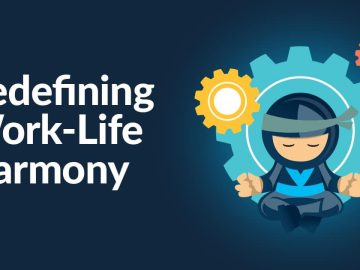Gen Z lives on the precipice of a changing world, coming of age in a time of major upheaval and societal change.
From attending school online in the midst of a global pandemic to entering a mostly hybrid workforce, Gen Z is solidly online, a fact that affects how they relate to the generations above them.
Almost half of Gen Z thinks being 10 minutes late to work is as good as being on time, but 80% of Boomers disagree.
According to a survey conducted by Meeting Canary, and reported on by Fast Company, almost half of people aged 16 to 26 think that showing up to work between five and ten minutes late is the same as being right on time.
Yet, as is the case with most situations involving the younger generation, boomers believe their lax relationship with time is another sign of their unwillingness to work hard.
Only 20% of boomers reported being forgiving toward late co-workers. The survey maintained that boomers put their faith in extreme punctuality, noting they think that “If you arrive after the agreed time at all then you are late.”
As far as other generations go, 40% of millennials don’t mind if people are slightly late to work, and 26% of Gen X are fine with colleagues being 10 minutes behind schedule.
Vlada Karpovich / Pexels
70% of boomers said they have zero tolerance for any lateness at work, revealing just how rigid they are.
As much as older workers don’t want to accept it, the workplace is changing in many ways for the better.
Younger workers are prioritizing their mental health over profits, a concept that’s the polar opposite of the boomer mindset of building and hoarding wealth.
Gen Z is reimagining the meaning that work holds in the world, a welcome change from the deeply ingrained capitalist structures we live under, which provide no social safety nets or any amount of job security — just ask any employee who was told their company was a family, only to be laid off with no compensation.
Gen Zers are more likely to seek work based on the guidance of their moral compass, with many even quitting their jobs because of political issues like climate change.
The truth is that the way work functions in the U.S. has been broken for a long time, and Gen Z is standing up and saying so.
 Tim Douglas / Pexels
Tim Douglas / Pexels
The founder of Meeting Canary, Laura van Beers, commented on the connection between Gen Z’s lateness and their desire to make work fit their lives and not the other way around.
“Gen Z is more likely than other generations to value and prioritize work-life balance and mental health above workplace stresses — and that includes rushing around to be on time for a meeting,” she said.
She also noted the way that working remotely has affected their sense of time management, saying, “Where working from home has blurred the lines in what good meeting etiquette is for the younger generations, older office workers still have a more established, traditional view.”
Related Stories From YourTango:
While boomers are aging out of the workforce, some are still holding onto their jobs with a vice grip, yet they seem unwilling to accept that each era ushers in change, and they might not be in charge of how work operates for much longer.
Gen Z gets maligned for so much, yet all too often, the cultural critique surrounding them isn’t justified. Another world is possible, and it’s Gen Z who will guide the way into a new future.
Alexandra Blogier is a writer on YourTango’s news and entertainment team. She covers social issues, pop culture, and all things to do with the entertainment industry.




